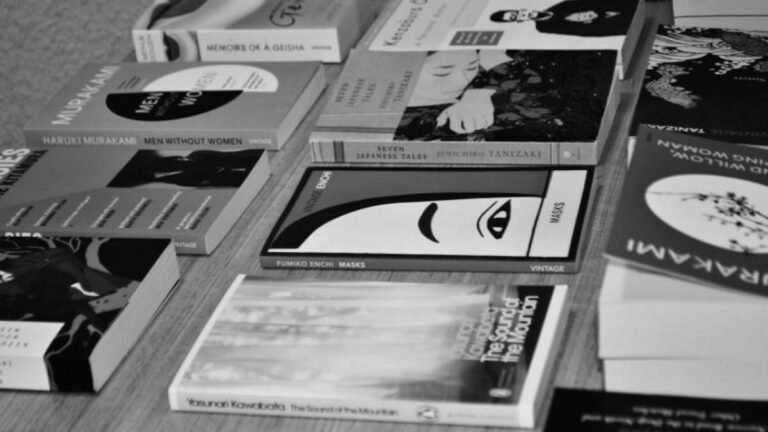Arunima Mazumdar’s exploration of Japanese literature began in 2010, when a friend gave her a copy of Haruki Murakami’s Sputnik. “You could say I didn’t choose the book, but the book chose me,” she says. Over ten years later, her love of Japanese literature, of course translation, led her to start her Deutsche Book Club to meet like-minded people and share her love of Japanese stories. I guided her to lift it up.
“Dokusha means reader in Japanese,” Mazumdar explains. “The idea to start a book club came to me in December 2020. It has been more than 10 years since I started reading Japanese literature in translation, and many of my friends are avid readers. But they weren’t interested in Japanese novels, so they didn’t have anyone to talk to about books. At the same time, I always had a desire to discover new and old Japanese authors and their translators, so I started reading them on Instagram. I decided to start a Gram page to record what I was reading and invite other readers to join in,” she says.
Since its launch last January, the page has nearly 3,500 followers on Instagram, despite its niche focus. Joining a book club is easy and free, and only requires a simple registration.Following the initial “great” response, it has expanded to Delhi, Mumbai, Kolkata, Bengaluru, Hyderabad, and even Dehradun, Jorhat, Guwahati, Cuttack, etc.
“The community is on Instagram, so there are a lot of young people who join the platform. But in India, the readers of Japanese novels are of all ages.
The first book I read at the club was “The Life of Sayaka Murata.”
Although the book club started online, members try to meet offline frequently and have held two physical meet-ups so far. Both were held in Delhi; the first was held in July last year at Kunzum Bookstore in collaboration with the Japan Foundation, and the most recent was in Delhi. Oxford Bookstore in February. “The discussion was mainly about the overall interest in Japanese novels, and many readers shared their love for Japanese books,” Mazumdar said.
Dokusha Book Club plans to meet in person more frequently, not only in Delhi but also in other locations such as Mumbai, Bengaluru, and Kolkata. Meanwhile, Mazumdar is also considering starting a literary magazine with this theme. “There are so many ideas for expanding the book community,” she comments.
With book readership on the decline, especially in the age of social media, book clubs like this are a positive sign. There are several silent clubs that operate not only in Germany but also in various cities, where people gather in a designated place, just read quietly, leave as they like, or socialize with fellow readers. There is freedom to do so. For example, one club meets every weekend at Lodhi Gardens in Delhi and another at Cubbon Park in Bangalore.
While Mazumdar’s main goal at Deutschland is to encourage more reading of Japanese literature in India, “another important objective is to encourage more translations of Japanese literature into Indian languages. There are currently a select number of books and authors translated from Japanese into Malayalam, Bengali and Marathi, and I would like to do my bit to encourage more such translations. ” she says.


